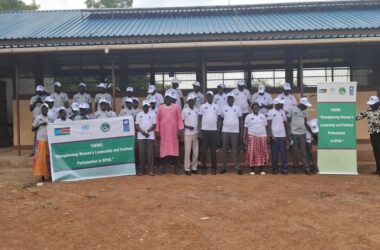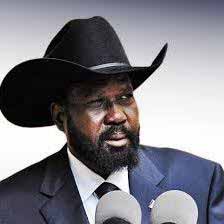By Yiep Joseph
Civil society organizations are urging the government to take immediate action to improve the water supply system in Juba, where access to clean drinking water has become increasingly scarce.
The activists stated that the situation has escalated to the point where water is now being sold on the ‘black market’, exacerbating the suffering of residents.
While disagreements persist between the Juba City Council and the clean water suppliers, residents in various neighborhoods are facing severe shortages, with many reporting that they are unable to access clean water for both consumption and domestic use due to protests by water tank drivers.
The drivers are opposing a government order that mandates a reduction in the price of a barrel of water from SSP 5,000 to SSP 2,500 in the City and SSP 3,000 in the outskirts of the town.
“Citizens are suffering from the absence of water tankers to supply them water in the areas, and this is a result of the decision that was made by JCC to reduce a barrel to 2500 SSP,” Edmund Yakani, the Executive Director for Community Empowerment for Progress Organization (CEPO) said in an interview.
“Water has become an aspect of the black market now because water tank drivers continue to sell at high prices to certain specific groups of people with money,” he said.
Yakani expressed that it is hard for low-income people to get water, hence most of their businesses close down.
“Some businesses are collapsing because of a lack of water; women at tea places continue to face serious challenges, and they are collapsing,” he said.
Activists are urging the government to develop a solution that could rescue the suffering of citizens caused by the ongoing water crisis.
“I am appealing to our leaders that there is a need for an urgent decision for resumption of supply of water to the citizens by water tank drivers, and of this means, I am urging our leader’s nationalism is needed now that citizens are suffering,” he said.
“Now it is proven clear that we are not giving services to our people and come up with solutions to water as an essential commodity,” he added.
He criticized the government for failing to address crucial issues such as the supply of clean water to its citizens.
Ter Manyang, the Executive Director of the Centre for Peace and Advocacy (CPA), also called on the government to devise a comprehensive plan to improve the water supply system.
He said that a single protest by water suppliers has impacted many residents who depend on mobile water tankers.
“To address this issue, CPA recommends that the government collaborate with JICA to improve water supply systems. This will help alleviate the problems caused by the negative behaviours exhibited by both foreign and South Sudanese water tanker operators,” Ter said.
Ter claimed that the decision of the water tank drivers to reject the order from the City Council is a clear indication that they have their own agenda.
“The CPA urges the Government of South Sudan to expedite processes related to water management to ensure that the population benefits from reliable access to water,” he said.
The Order
Recently, the JCC announced a new price for a drum of water, cutting it from SSP 5,000 to SSP 2,500 within the city centre and 3,000 in the outskirts.
According to the City Council, the decision was reached in consultation with urban water cooperation and water suppliers.
However, many residents reported that suppliers are still charging the original price of 5,000 SSP per drum. In some areas, the suppliers charge even SSP 6, 000.
Meanwhile, Water Resources Minister Pal Mai in his address to the National Assembly said that his ministry and the South Sudan Urban Water Corporation, which is within his docket, do not have the mandates to set the prices for commercial water tankers that deliver water in and around Juba.
He said that the water corporation sells a drum of water to the tanker drivers at SSP 500, but they then go and retail at their prices.



